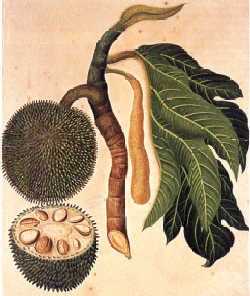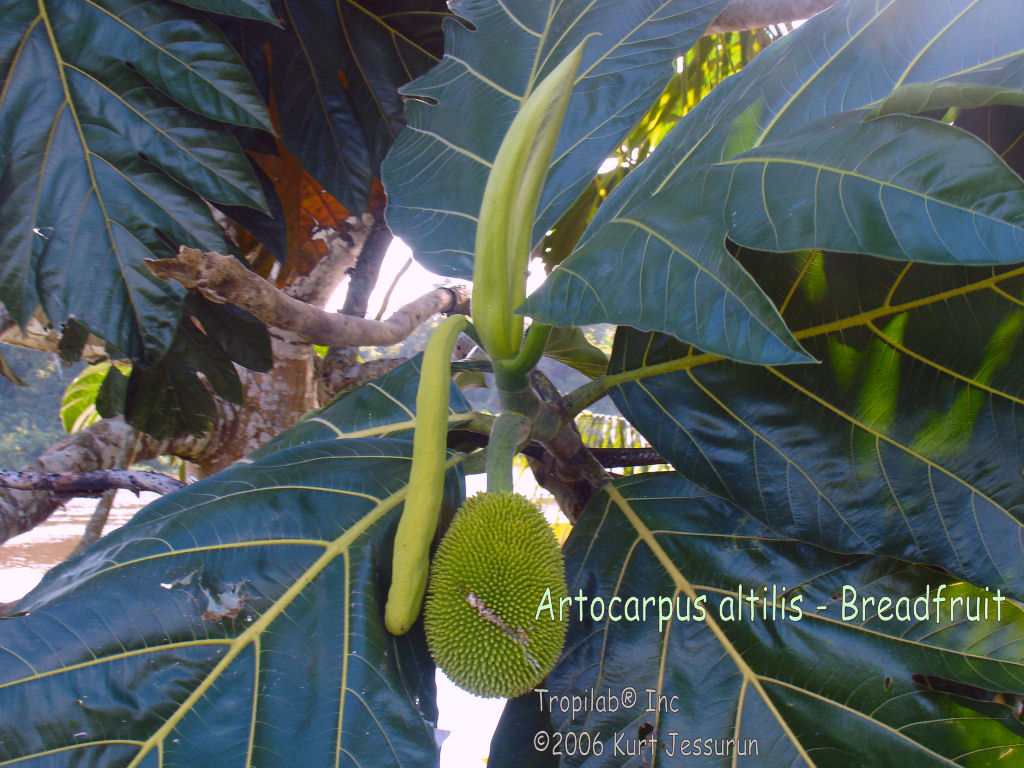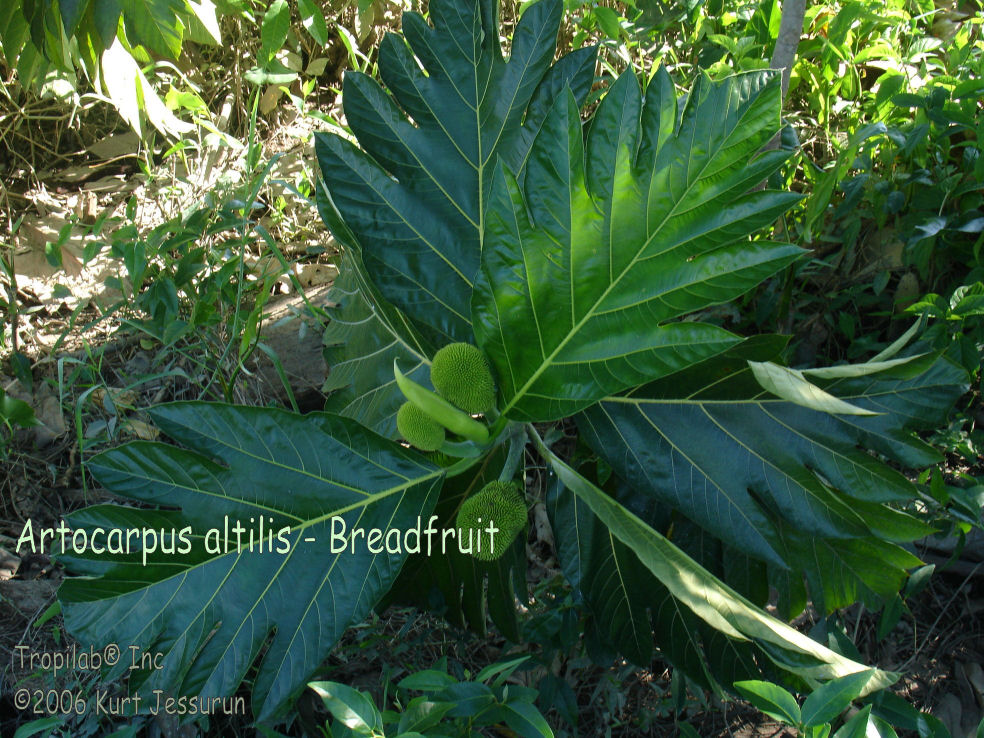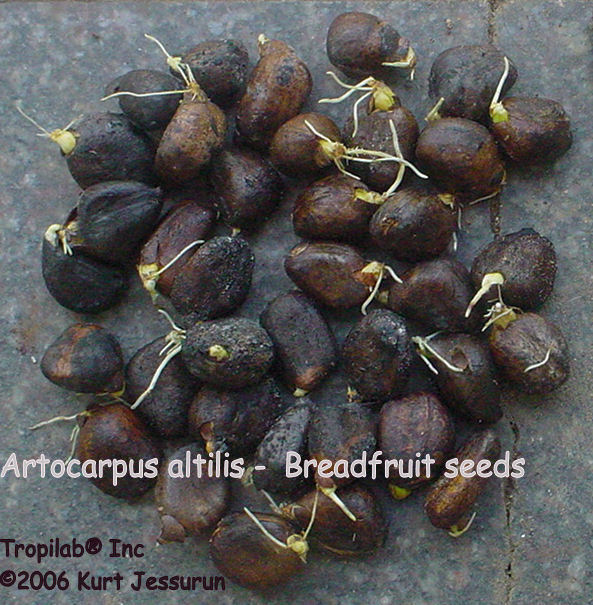ARTOCARPUS ALTILIS - BREADFRUIT.
 Synonym
Synonym
Artocarpus communis, Artocarpus incisus.
Common name
Fruta de pan, fruit a pain, breadfruit, broodvrucht, fruta pao, arbodel pan, mazapan, castana, suku, sukun,
kluwe, kulur, kulor.
Family
Moraceae (Mullberry family).
Overview
A tall evergreen tropical tree, reaching a height of 90', with many spreading branches.
The kluwe (seeded)
is originally from Java, Indonesia, but also growing abundantly in Suriname.
The seedless variety is called sukun, ulu or rimas.
The large glossy green leaves are deeply cut into 5 to 11 lobes. They have hair on the underside.
Breadfruit has small male- and female flowers, while the fruits are first green then yellow or, yellow-brown when ripe.
When fully
ripe the fruit is cream colored and fragrant on the inside.
The mature fruits are high in carbohydrates and low in fat and protein.
They are also a good source of B vitamins.
The recalcitrant seeds are oval, round at one end; brown with darker stripes.
All parts of the breadfruit tree have milky, gummy latex that can be used as a natural adhesive for canoes.
There are many varieties of the breadfruit; there are also seeded and seedless breadfruits.
The breadfruit can be consumed as a fruit when ripe or as a vegetable when under-ripe.
It has irregular shaped seeds, ¾" long, brown with darker stripe.
The seeds can be boiled or roasted and eaten with a little salt.
Medicinal applications
In the West Indies a decoction of the leaves is used to lower elevated blood pressure and to relieve asthma.
The shoots, bark and latex have also medicinal applications.
Hardiness
USDA zone 9B - 11.
Propagation
Seeds, stem cuttings.
Due to recalcitrant nature of the seeds, they have a short viable life, can not be dried well and can not withstand low temperatures.
Culture
Full sun, rich moist and soil, high humidity, lots of rainfall.
Being an ultra tropical tree, it is very
sensitive to cold weather.
Recalcitrant seeds are not refundable since they are prone to fungus and often difficult to germinate.
|




